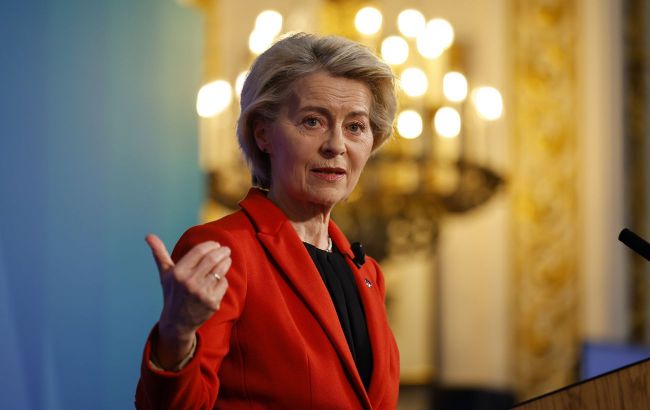EU and Japan join forces amid US tariff pressure
 Photo: European Commission President Ursula von der Leyen (Getty Images)
Photo: European Commission President Ursula von der Leyen (Getty Images)
The European Union and Japan have announced the strengthening of their economic partnership amid escalating global trade tensions provoked by US President Donald Trump's tariff policy, according to a statement made during the 30th EU-Japan summit.
For example, the European Union and Japan have announced the deepening of their strategic economic partnership.
"The world is changing rapidly. For strategic partners like us, it means becoming even closer to face the realities of our times," says European Commission President Ursula von der Leyen.
She emphasizes the need to protect free and fair trade in the world at a time when supply chains remain fragile and trade tensions are high.
In a joint statement issued after the summit, the EU and Japanese leaders reaffirmed their commitment to the principles of multilateral trade and the World Trade Organization (WTO), apparently alluding to the actions of the US administration, which has unilaterally imposed tariffs on its partners.
Japanese Prime Minister Shigeru Ishiba said: "The EU and Japan firmly share values and principles such as the rule of law, fundamental freedoms, democracy, human rights, and open, free and fair trade."
US tariff agreements
During the summit, it became known that Japan and the United States signed a separate trade agreement that provides for a 15% tariff on Japanese imports to the United States. The agreement, announced by Donald Trump, was a compromise after previous threats to impose a tougher 25% tariff.
The European Union has not yet reached a similar agreement with the United States. Brussels continues to conduct difficult negotiations after Washington imposed tough tariffs: 50% on steel and aluminum, 25% on cars, and 10% on other categories of imports from the EU.
Trade cooperation between EU and Japan
Against this background, the EU and Japan have decided to step up the implementation of the Economic Partnership Agreement signed in 2019.
Thus, according to von der Leyen, trade between the parties has already increased by 20%, and European exports to Japan amount to €70 billion a year, with another €28 billion in services.
The parties agreed to speed up the implementation of the agreement in areas such as public procurement, sanitary standards, investment, and strategic materials.
They also agreed to reduce dependence on supplies of critical components from third countries, primarily China.
Reasons for deepening cooperation
The context for closer cooperation between the European Union and Japan was not only China's restrictions on raw material exports, but also trade disputes.
Japan, for example, is still under pressure from China's ban on seafood imports, and the EU has open disputes with Beijing over electric vehicles, dairy products, pork, and alcohol.
Thus, Tokyo and Brussels are sending a clear signal: in the face of increasingly aggressive US protectionism and China's strategic pressure, the two economic powers - the EU and Japan - are choosing to strengthen their alliance and jointly promote a rules-based global trade order.
The EU plans to impose a 30% tariff on American exports worth about €100 billion ($117 billion) if the US does not abandon its intention to impose its tariffs after August 1.
For example, in a letter to European Commission President Ursula von der Leyen, US President Donald Trump noted that trade relations with the EU “unfortunately have been far from reciprocal.”

